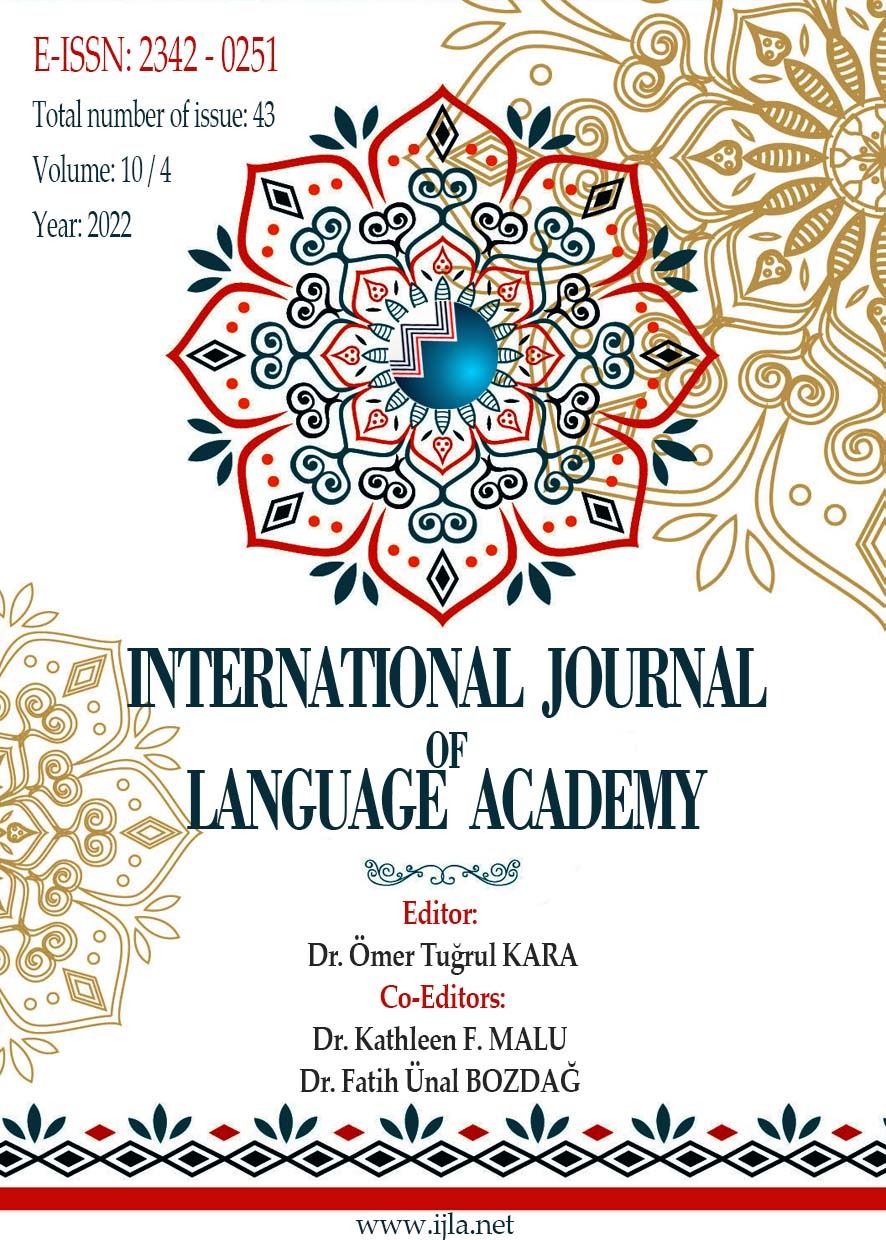Gerontology Studies in Contemporary Cinema: Representation of the Relationships between Care-Givers and Care-Takers in the Father
Author :
Abstract
Keywords
Abstract
Written/directed by F. Zeller, the Father tells the story of 80-year-old Anthony, who suffers from Alzheimer. The events are not narrated by the people around him, but through his own eyes. This gives a chance the audience to witness how an Alzheimer-patient’s perception of the world is different from the perception of other people and may carry many similarities with the postmodern-concepts such as the distortion of chronological order and the multiplicity-of-reality and the-absurdity-of-life. The spectator finds himself inside Anthony’s head and goes through the deterioration in his mind, each-and-every stage of the disease with him. Meanwhile, his daughter/Anne gets the role of a caregiver and tries to take care of her father, when he is going through tough times. Not surprisingly, this will be a challenge for both parties. In the Father, the audience can see the psychological phases they go through as the disease sneakily invades Anthony’s mind; how they try to figure a way out to carry out their daily activities on. Considering all the complex nature of Alzheimer-disease, sometimes they both feel as if they came to a dead-end and are very depressed. Taking the experiences of Anthony (the-care-taker) and Anne (the-care-giver) into consideration as reflected in the Father, it is hoped that this study will help raise consciousness in the public about Gerontology studies; what should be done for the improvement of life-standarts of care-givers and care-takers. Thus, in this study, the representation of the relationships between care-givers and caretakers will be analyzed by looking closely at the conversations between the father and daughter in the Father. Moreover, through the method of close-reading, the problems they encounter during this process will be scrutinized and the question of what measures should be taken to ease the burden of care-givers and care-takers will be raised as well.
Keywords
- Bennett, J. (1986). Private nursing homes: Contribution to long stay care of the elderly in the brighton health district, British Medical Journal (Clinical Research Edition), 293 (6551), http://www.jstor.org/stable/i29524672. 867-870.
- Cherry, K. (2022). What is a guilt complex?”, https://www.verywellmind.com/guilt- complex- definition-symptoms-traits-causes-treatment-5115946#:~:text=Coping, What%20Is%20a%20Guilt%20Complex%3F,feelings%20of%20shame%20and%20 anxietyUpdated on August 21, 2022.
- Doron, I. (2018). “What is Ageivisim?: Without ideology, there is no future for the older persons' human rights movement !”, https://www.ageivism.org/about.
- Gass, T. E. (2004). Nobody’s home: Candid reflections of a nursing home aide (the culture and politics of health care work). ILR Press. https://www.amazon.com/NobodysHome-Candid-Reflections- Nursing/dp/080147261X.
- Mate, G. (2004). When the body says no: The cost of hidden stress. Vintage: Canada.
- NAMHPAC (North American Mental Health Professional Advice Council Writers). (2020). “7 Sad Colors at Home that Affects Your Mental State”. Feb.14, https://www.namhpac.org/7-sad-colors-at-home-that-affect-your-mental-state/.
- Öğütcü, M. (2022). Gerontoloji ve edebiyat: Genel bir bakış”. RumeliDE Dil ve Edebiyat Araştırmaları Dergisi, (27), 728-744.
- Philip, F. (2002). The love of his life”, The Observer-Culture. Jan. 20. https://www.theguardian.com/theobserver/2002/jan/20/features.review27.
- Picture 1: https://anetteinselberg.com/2016/08/06/9-yasindaki-bir-cocugun-cizmis- oldugu-resim-anlamina-gelince/.
- Picture 2: https://highdefdiscnews.com/2021/04/26/the-father-starring-anthony- hopkins-on-blu-ray-in-may/.
- Reis, H. (2013). Chaucer and the representation of old age. Ankara: Ürün Yayınları.
- “TheFatherFinalScript”, (2020). https://deadline.com/wp- content/uploads/2021/02/thefather-screenplay.pdf. ACKNOWLEDGMENTS





